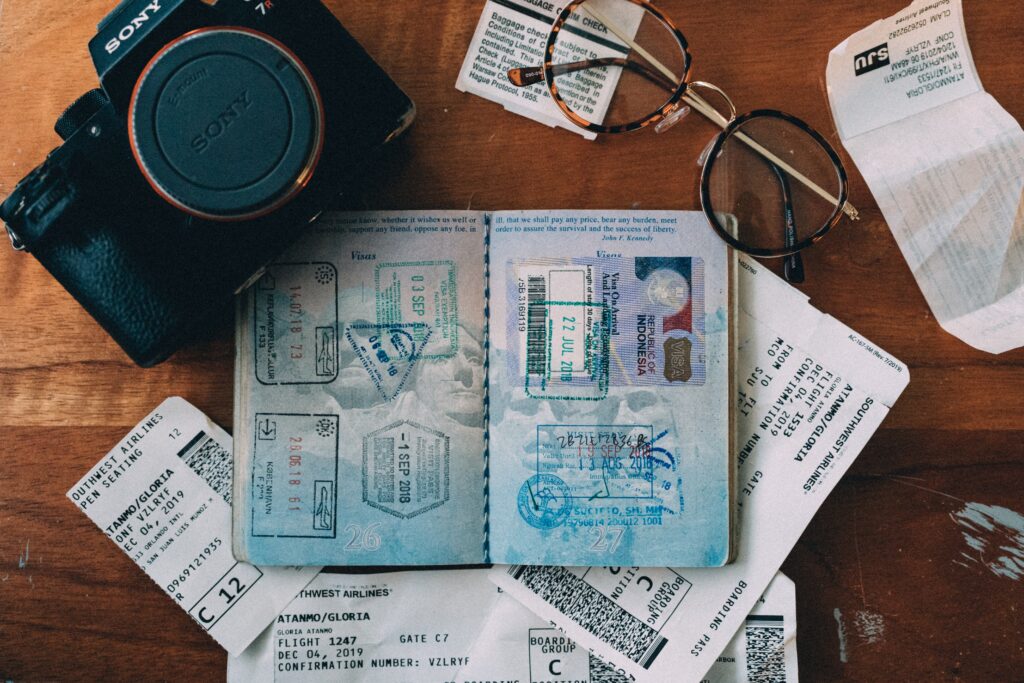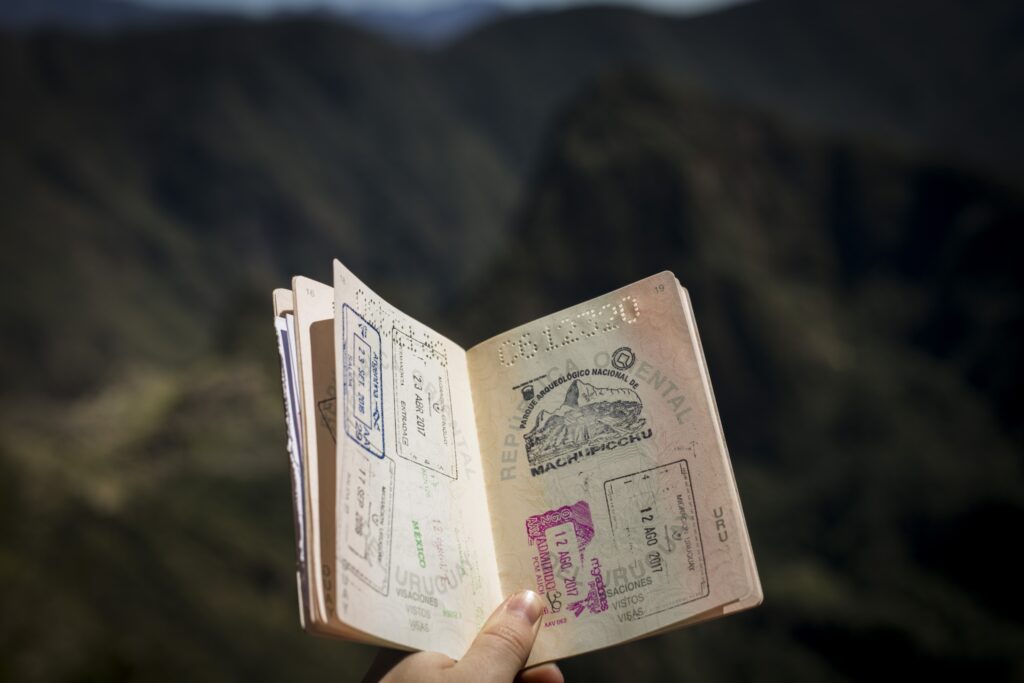
If you find yourself in the unfortunate situation of losing your passport, don’t worry, we’ve got you covered. In this article, we will guide you step by step on what to do next to minimize the resulting stress and inconvenience. From reporting the loss to the authorities to applying for a new passport, we’ll provide you with the necessary information and resources to help you navigate this challenging situation. So, keep reading to find out exactly what you need to do if you lose your passport.
Overview of passport loss
Losing your passport can be a stressful situation, but it’s important to stay calm and take the necessary steps to resolve the issue. A passport is a vital document and serves as proof of your citizenship. It is required for international travel and also provides identification in various situations. Hence, losing your passport can have serious consequences and it’s crucial to handle the situation promptly and efficiently.
Importance of passport
Your passport is not only a means of identification but also a gateway to explore the world. It allows you to travel internationally, experience different cultures, and create lifelong memories. Losing your passport can significantly disrupt your travel plans and can lead to potentially dangerous situations.
Moreover, a passport contains personal information that can be valuable to identity thieves. It is essential to take immediate action to secure your identity and prevent any misuse of your personal information.
Common scenarios of losing a passport
Passport loss can occur in various scenarios. It can be misplaced, stolen, or accidentally damaged. Misplacing a passport is quite common, especially during travel when you may be handling multiple documents. Additionally, passports can be stolen by pickpockets or opportunistic thieves who target tourists. Accidental damage to a passport, such as water damage or tearing, can also render it invalid.
Consequences of losing a passport
Losing your passport can lead to numerous consequences, both immediate and long-term. The most obvious consequence is the inability to travel internationally. Without a valid passport, you will not be able to exit or enter any country. This can result in costly delays, missed flights, and the need to reschedule travel plans. Moreover, you may face legal consequences if you are found traveling without proper identification.
Another major consequence of losing your passport is the risk of identity theft. Passports contain sensitive information, including full name, date of birth, and passport number. Identity thieves can use this information to commit various fraudulent activities, including opening credit accounts, applying for loans, or even committing crimes in your name. This can have long-term financial and legal implications.

Immediate steps to take
If you find yourself in the unfortunate situation of losing your passport, it is important to take immediate action. Here are the steps you should follow:
Stay calm and assess the situation
Losing your passport can be distressing, but it’s vital to stay calm and assess the situation objectively. Take a moment to breathe and gather your thoughts. Panicking will only hinder your ability to think clearly and take the necessary steps.
Contact local authorities or embassy
The next step is to contact the local authorities or your country’s embassy or consulate. They will be able to provide guidance on the specific procedures and requirements for reporting a lost passport. They may also assist you in obtaining any necessary documents or temporary travel documents.
File a police report
Reporting the loss of your passport to the local police is an important step in protecting yourself against any potential identity theft or fraudulent activities. A police report serves as official documentation of the incident and can be used as supporting evidence when applying for a new passport or dealing with any related issues.
Document any supporting evidence
It is essential to document any supporting evidence of your lost passport, such as travel itineraries, photocopies of the lost passport, or any witness statements. This documentation can help expedite the process of obtaining a new passport and serve as proof in case of any discrepancies.
Replacing a lost passport
Once you have taken the immediate steps, the next phase is replacing your lost passport. Here’s what you should do:
Contact your country’s embassy or consulate
Get in touch with your country’s embassy or consulate as soon as possible to report the lost passport and initiate the process of obtaining a new one. They will provide you with detailed instructions on the specific documents required and guide you through the application process.
Provide necessary documents
When applying for a new passport, you will typically need to provide certain documents to prove your identity, citizenship, and eligibility for a new passport. These documents may include a copy of your police report, proof of citizenship, proof of identity, and passport-sized photographs. Ensure that you have all the required documents in order to avoid any delays in the process.
Complete the passport application form
Fill out the passport application form accurately and thoroughly. Any errors or missing information can prolong the processing time. Take the time to double-check all the details before submitting the form.
Pay any required fees
There may be fees associated with obtaining a new passport. Make sure to inquire about the payment methods accepted and the amount due. It is advisable to carry some extra cash or a credit card to cover the fees.
Schedule an appointment
Depending on the embassy or consulate, you may need to schedule an appointment to submit your application and supporting documents. Be sure to follow the instructions provided and arrive on time for your appointment.

Additional measures to take
Apart from the immediate steps and replacing your passport, there are additional measures you should take to ensure your safety and minimize any further disruption:
Secure your identity and personal information
If you suspect that your lost passport may have fallen into the wrong hands, it is crucial to take immediate action to secure your identity and personal information. Monitor your financial statements regularly, change passwords for online accounts, and consider placing a fraud alert on your credit reports.
Notify relevant authorities and institutions
Inform relevant authorities and institutions about the loss of your passport. This includes your local government office, banks, and credit card companies. By notifying them, you can prevent any unauthorized activity on your accounts and reduce the risk of identity theft.
Consider extra precautions for international travel
If you plan to continue with your international travel despite losing your passport, it is important to take extra precautions. Carry copies of your police report and any other relevant documents. Be prepared for increased scrutiny at border controls and cooperate with immigration authorities to ensure a smooth transition.
Check travel insurance coverage
If you have travel insurance, review your policy to understand the coverage in case of a lost passport. Some policies may provide assistance in obtaining a new passport or cover the costs associated with rebooking flights or accommodations due to the loss.
Assistance from local authorities
When faced with a lost passport, it is essential to seek assistance from local authorities. Here’s how they can help:
Cooperating with law enforcement
Local law enforcement agencies can assist you in filing a police report and provide guidance on the process. They may also be able to provide information about common scams or areas to avoid if your passport was stolen.
Seeking support from consulates
Your country’s consulate or embassy can offer valuable assistance, including issuing emergency travel documents or facilitating communication with local authorities. They are trained to handle such situations and will be able to guide you through the necessary steps to resolve the issue.
Understanding local regulations and procedures
Local authorities can provide information about the specific regulations and procedures for reporting a lost passport. Different countries may have different requirements, and it is important to adhere to their guidelines to ensure a smooth process.

Resolving travel disruptions
Losing your passport can cause significant disruptions to your travel plans, but there are ways to resolve these issues:
Secure temporary travel documents
If you need to leave the country urgently but do not have sufficient time to obtain a new passport, you can apply for temporary travel documents from your embassy or consulate. These documents will allow you to return to your home country or continue with your travel plans while the process of obtaining a new passport is underway.
Contact airlines and transportation providers
Inform airlines, hotels, and other transportation providers about the loss of your passport and any potential travel disruptions. They may be able to offer support, such as rescheduling flights or providing assistance with alternative travel arrangements.
Reschedule or rearrange travel plans
If necessary, consider rescheduling or rearranging your travel plans. This may involve canceling or rebooking flights, accommodations, and any activities you had planned. Check the cancellation policies of the providers and contact them as soon as possible to minimize any financial losses.
Potential risks and precautions
Losing your passport can expose you to certain risks, and it’s important to be aware of them:
Identity theft and fraud
The loss of your passport can put your personal information at risk. Be vigilant against any signs of identity theft or fraudulent activities. Regularly monitor your financial statements, credit reports, and closely review any communications or transactions that seem suspicious.
Potential delays and inconveniences
Obtaining a new passport takes time, and you may experience delays in your travel plans. Factor in the additional time required for processing and be prepared for potential inconveniences. Stay patient and communicate with the relevant authorities to minimize any disruptions.
Travel restrictions and limitations
In some cases, losing your passport may result in travel restrictions or limitations. Some countries may require additional documentation or impose stricter security measures. Familiarize yourself with the requirements of your destination country to avoid any surprises upon arrival.
Preventing passport loss
While losing your passport can be a distressing experience, there are preventive measures you can take to minimize the risk:
Keep passport in a safe place
Always keep your passport in a secure location, preferably a locked safe or a hidden pocket in your bag or clothing. Avoid leaving it unattended in hotel rooms or other public places.
Make copies and store securely
Make photocopies of your passport and store them separately from your actual passport. You can also consider storing digital copies in secure cloud storage or emailing them to yourself. These copies can be helpful in case of loss or theft, as they can serve as a reference when applying for a new passport.
Utilize passport protection accessories
Consider using passport protection accessories such as passport covers or sleeves. These can provide an additional layer of protection against damage and make the passport less conspicuous to potential thieves.
Planning for emergencies
Being prepared for emergencies can help alleviate stress and ensure a smooth process in case of passport loss. Here’s what you can do:
Travel insurance considerations
When purchasing travel insurance, make sure to review the coverage related to lost passports. Consider policies that provide assistance for obtaining new passports or cover the costs associated with travel disruptions caused by a lost passport.
Emergency contact information
Keep a list of emergency contact numbers, including your country’s embassy or consulate, local law enforcement, and your travel insurance provider. Having this information readily available can help you quickly reach out for assistance if needed.
Alternative identification documents
Carry alternative identification documents, such as a driver’s license or a photocopy of your passport, especially if you are traveling within your own country. While these may not be accepted for international travel, they can come in handy in case of domestic emergencies.
Conclusion
Losing your passport can be a distressing experience, but by following the appropriate steps and taking necessary precautions, you can minimize the impact of the situation. Stay calm, report the loss to the authorities, and take immediate action to replace your passport. By staying vigilant, being prepared for emergencies, and taking preventive measures, you can safeguard your identity and ensure a hassle-free travel experience. Remember, the key is to act promptly and seek assistance from the relevant authorities to resolve the issue efficiently.




